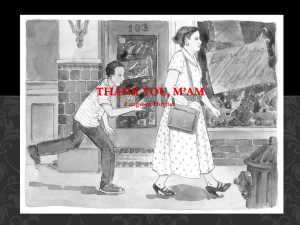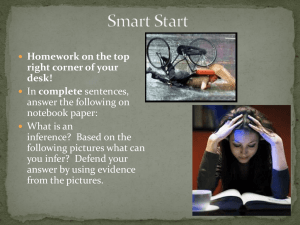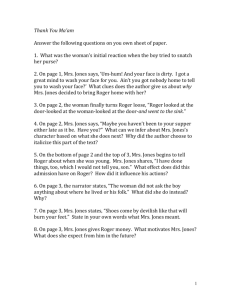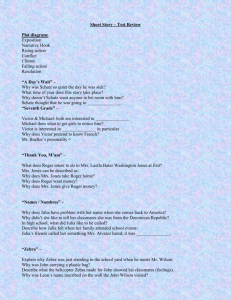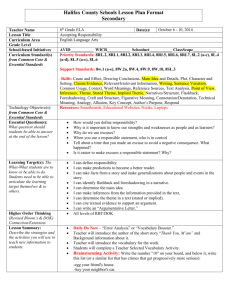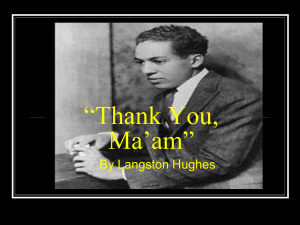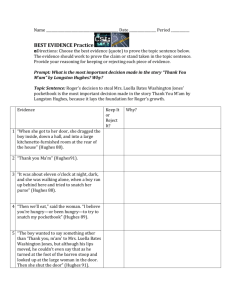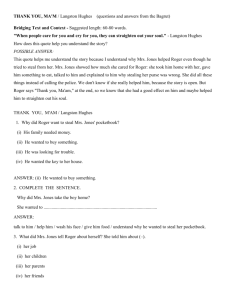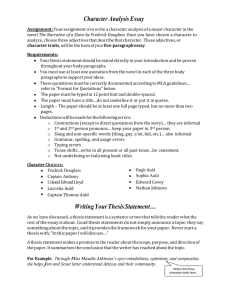Student essay on “Thank You, M`am” by Langston Hughes
advertisement
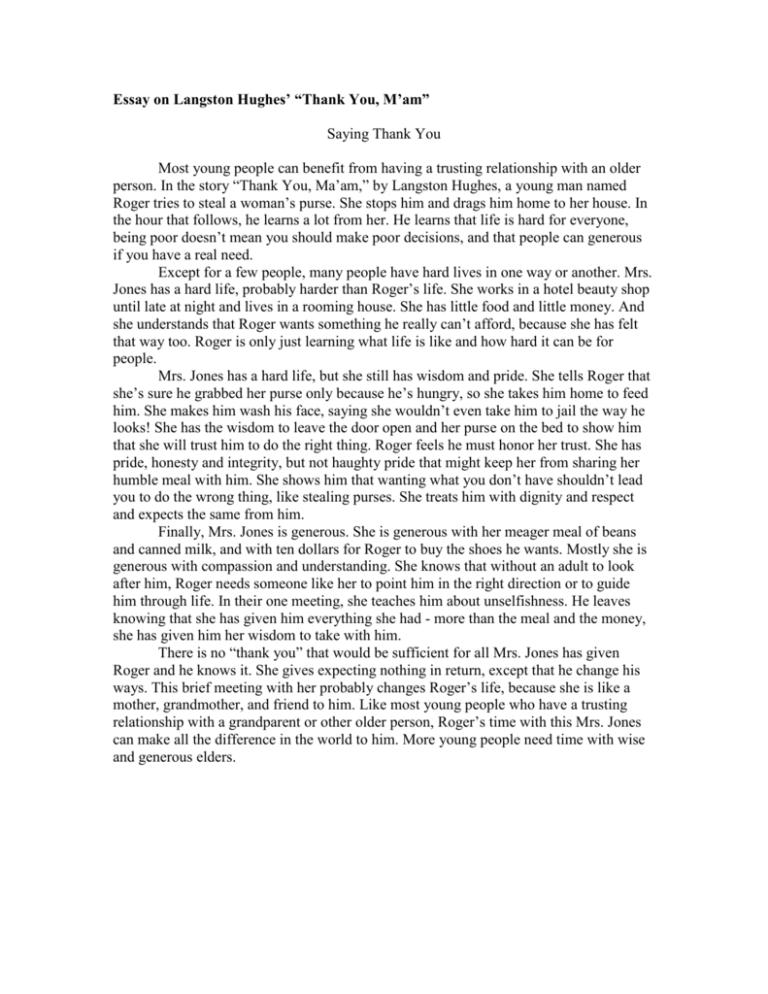
Essay on Langston Hughes’ “Thank You, M’am” Saying Thank You Most young people can benefit from having a trusting relationship with an older person. In the story “Thank You, Ma’am,” by Langston Hughes, a young man named Roger tries to steal a woman’s purse. She stops him and drags him home to her house. In the hour that follows, he learns a lot from her. He learns that life is hard for everyone, being poor doesn’t mean you should make poor decisions, and that people can generous if you have a real need. Except for a few people, many people have hard lives in one way or another. Mrs. Jones has a hard life, probably harder than Roger’s life. She works in a hotel beauty shop until late at night and lives in a rooming house. She has little food and little money. And she understands that Roger wants something he really can’t afford, because she has felt that way too. Roger is only just learning what life is like and how hard it can be for people. Mrs. Jones has a hard life, but she still has wisdom and pride. She tells Roger that she’s sure he grabbed her purse only because he’s hungry, so she takes him home to feed him. She makes him wash his face, saying she wouldn’t even take him to jail the way he looks! She has the wisdom to leave the door open and her purse on the bed to show him that she will trust him to do the right thing. Roger feels he must honor her trust. She has pride, honesty and integrity, but not haughty pride that might keep her from sharing her humble meal with him. She shows him that wanting what you don’t have shouldn’t lead you to do the wrong thing, like stealing purses. She treats him with dignity and respect and expects the same from him. Finally, Mrs. Jones is generous. She is generous with her meager meal of beans and canned milk, and with ten dollars for Roger to buy the shoes he wants. Mostly she is generous with compassion and understanding. She knows that without an adult to look after him, Roger needs someone like her to point him in the right direction or to guide him through life. In their one meeting, she teaches him about unselfishness. He leaves knowing that she has given him everything she had - more than the meal and the money, she has given him her wisdom to take with him. There is no “thank you” that would be sufficient for all Mrs. Jones has given Roger and he knows it. She gives expecting nothing in return, except that he change his ways. This brief meeting with her probably changes Roger’s life, because she is like a mother, grandmother, and friend to him. Like most young people who have a trusting relationship with a grandparent or other older person, Roger’s time with this Mrs. Jones can make all the difference in the world to him. More young people need time with wise and generous elders.
